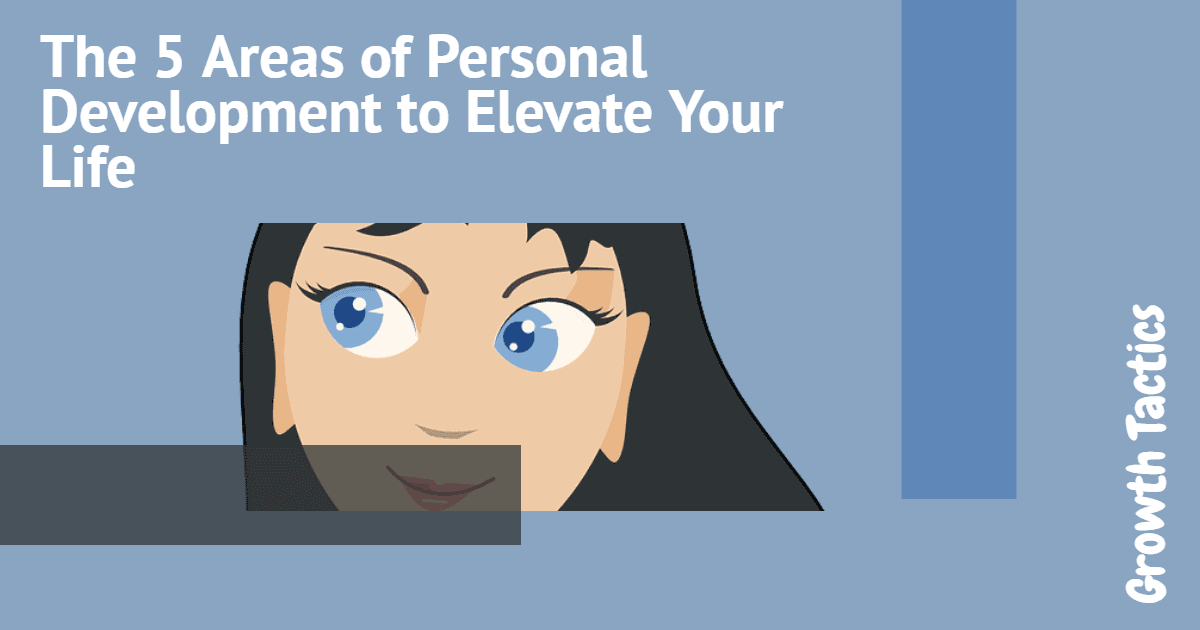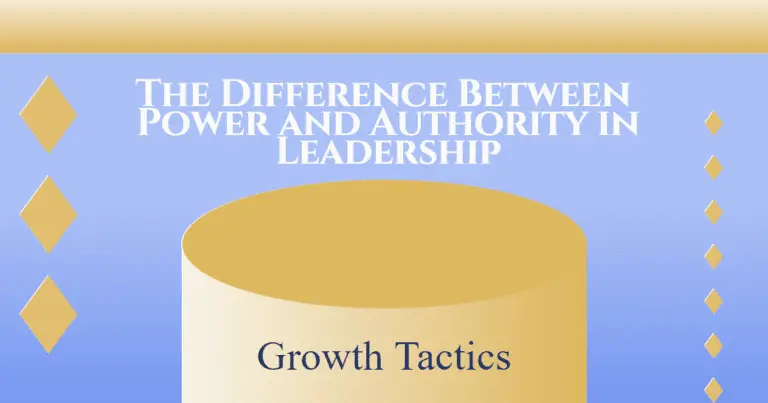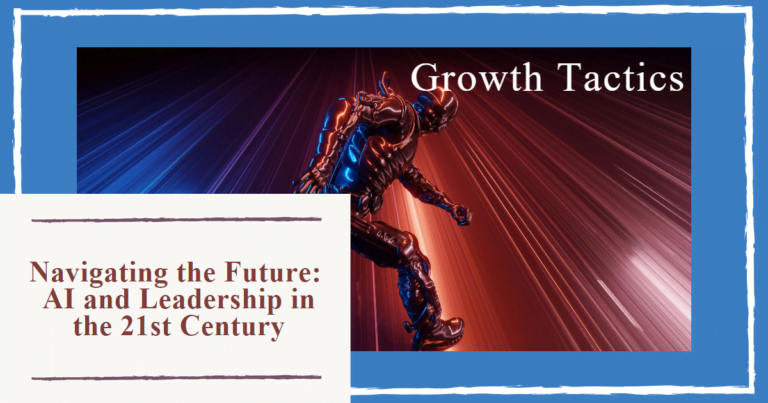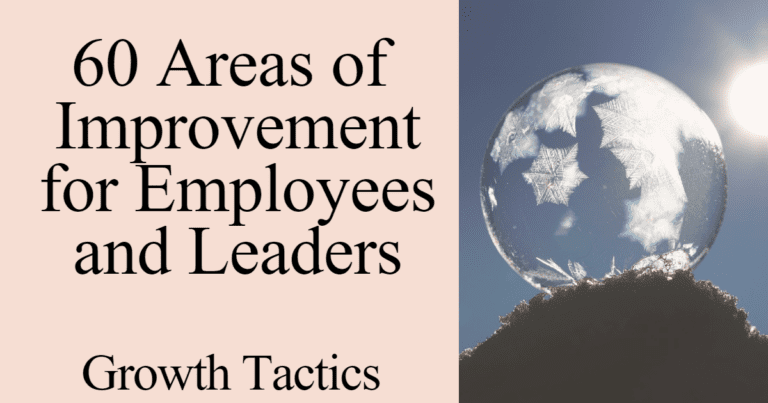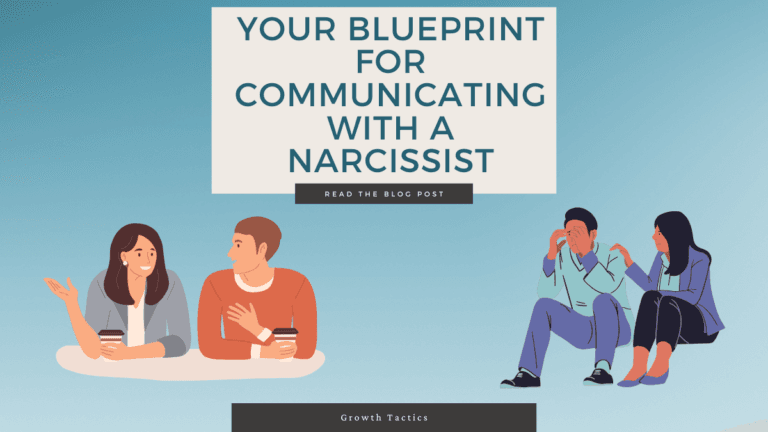When we think of areas of personal development, we often think of children. We develop our children with a holistic approach. It’s also important for us to develop in a holistic well-rounded manner.
We don’t quit developing once we become adults. Continuing to grow and develop throughout our entire life. We get wiser and smarter, building new skills and traits.
How you approach personal growth and the development paths you choose are crucial in becoming the best version of yourself. Continue reading for 4 key areas of personal growth and development.
Jump To Section
The Importance of Personal Development

Personal improvement is important for many reasons. The more you grow as a person, the more valuable you become to an employer and society. Improving your skills can lead to promotions, new jobs, and many other new opportunities.
Personal development allows you to cultivate your strengths and minimize or improve on your weaknesses. You can go from being bad at something to being good or excellent at it.
Eliminating your weaknesses can also boost your confidence. Confidence becomes a sort of building block. Meaning the more confident you become, the more capable you are of doing new things.
A growth mindset can also help you find a sense of direction in life. Personal development helps you get out of your comfort zone. You begin to try new things. This may lead to you finding things you didn’t even think you would like.
Personal development is something we should all be doing. Whether you’ve got your life figured out or you’re just getting started, you’ll always have room to grow and learn.
A Deep Dive Into The Four Areas of Personal Development
Taking a holistic development approach is crucial to see maximum benefits. All these areas are different but working on one area will strengthen others.
For example, becoming more physically fit will lead to more confidence. More confidence will lead to better social interactions. By working on your physical area of development, you also strengthen your mental and social areas.
Physical Development
Physical health forms the foundation of personal development. When our bodies are in optimal shape, we have the energy, stamina, and vitality to pursue our goals. Prioritizing physical well-being is crucial for leading a fulfilling life.
To improve physical health and fitness, it’s important to establish healthy habits. This can include regular exercise, proper nutrition, adequate sleep, and stress management. Setting realistic goals and gradually working towards them is essential for long-term success.

Examples of Physical Development Opportunities:
- Exercise
- Eating healthy
- Learning a new sport
- Taking dancing lessons
Emotional Development
Emotional well-being plays a significant role in personal growth. It involves understanding and managing our emotions effectively, developing resilience, and fostering healthy relationships.
Learning to manage stress and cope with emotions is essential for our overall well-being. Techniques such as mindfulness, meditation, and journaling can help us develop emotional resilience and create a strong foundation for personal growth. Building and nurturing healthy relationships, improving communication skills, and practicing empathy are essential for emotional development.
“Unlock your true potential and conquer the world by harnessing the power of personal development. 🌟✨ #MasteringMindset”
Examples of Mental Growth Opportunities:
- Taking classes
- Reading more
- Learning to play Chess
- Attending a leadership seminar
Spiritual Development
Spiritual growth goes beyond religious beliefs. It involves finding meaning and purpose in life, connecting with our inner selves, and aligning our actions with our values.
Self-reflection and introspection play a significant role in spiritual development. Practices such as meditation, self-care, spending time in nature, or exploring philosophical and spiritual literature can help us gain clarity and find inner peace. Understanding and embracing our values allow us to live authentically and foster personal growth.
Examples of Spiritual Development Opportunities:
- Performing self-reflection
- Meditating
- Understanding your values and beliefs
Social Development
Developing strong social skills is an essential component of personal growth, enabling you to connect with others and build meaningful relationships. By cultivating effective communication, active listening, and empathy, you’ll be better equipped to navigate social situations and constructively handle conflict. Furthermore, building a supportive network of friends, family, or colleagues can provide a sense of belonging and contribute to your overall well-being.
To enhance your social skills, consider engaging in activities that allow you to interact with others, such as volunteering, joining a club, or attending social events. These experiences can help you practice communication skills and build confidence in yourself. Additionally, don’t be afraid to seek feedback from trusted individuals to identify areas for growth and learn from your mistakes. With dedication and effort, you can develop strong social skills that will serve you well in all aspects of life.
Examples of Social Growth Opportunities:
- Focusing on being a better friend
- Learning to communicate better
- Studying body language and tone
- Gaining knowledge about other’s emotions
- Improving listening skills
Mental Development
Mental development is a crucial aspect of personal growth that focuses on enhancing cognitive abilities, critical thinking skills, and overall brain function. By actively engaging in mental development activities, individuals can improve their problem-solving skills, creativity, and decision-making abilities.
Examples of Mental Development:
- Learning a new language
- Solving puzzles and brain teasers
- Reading diverse materials
- Practicing mindfulness and meditation
- Taking up a musical instrument
- Engaging in strategic games
- Writing regularly
See Related: 25 Crucial Keys To Success In Life You Can Start Now
What Area of Personal Growth Benefits You The Most
Although you should take a holistic approach to development, there are certain areas you will want to focus on more than others. These areas are different for you than they would be for another person. These will be your personal development goals.
The best way to find out what areas to work on is to make a list of your strengths and weaknesses. List at least 5 strengths and 5 weaknesses. Look at your list and decide which weakness you can improve on the most. This is the area on which you want to focus the most attention.
You should still be looking for other opportunities to work in other areas. However, the focus will be on the area where you will get the most value for the time invested. This will be the area you build your personal development goals around.
Are you having a hard time figuring out your strengths and weaknesses? You can check out this interpersonal skills assessment from Skills You Need.
The Principles of Personal Development
Personal development is the process of improving oneself through different activities and training. It is an ongoing process that never ends. The principles of personal development are the guidelines you can follow to make sure you achieve your goals for personal growth. Here are some of the most essential principles to keep in mind:
Self-awareness
Self-awareness is an essential principle of personal development. To go on a journey of personal development, you must first know yourself. This can be achieved by identifying your character strengths and weaknesses, values, and motivations. Once you are aware of these things, it is easier to set goals and work on the areas that need improvement.
Goal-setting
Goals are essential in personal development as they give direction to your efforts. Setting goals that are specific, achievable, relevant, and time-bound (SMART goals) is the best way to work towards your objectives. You can make progress towards your goals by taking consistent actions or breaking them down into smaller tasks to achieve them easily.
Continuous learning
Learning is an important aspect of personal development, and it is a lifelong process. To keep growing, you must be willing to learn and adapt. Taking courses, attending seminars, and reading books on different subjects can broaden your perspective and help you develop new skills.
Time-management
Time is a valuable resource, and it is essential to use it wisely when working on personal development. Effective time management is vital in achieving your personal development goals. Prioritizing the most important tasks, setting deadlines, and breaking down tasks into smaller steps can help you make the most of your time.
Positive mindset
A positive mindset is vital in personal development, as it influences how you approach challenges, setbacks, and successes. Focusing on the good in any situation will help you navigate tough times and help you enjoy the rewards. Incorporating positive affirmations and gratitude exercises into your daily routine can help you develop a positive mindset.
Accountability
Holding yourself accountable for your actions is essential for personal development. Take responsibility for your mistakes, learn from them, and move on. A willingness to take ownership of your actions is a sign of maturity and self-awareness.
In conclusion, practicing these principles of personal development can help you achieve growth, confidence, and fulfillment. Remember, personal development is a journey, and it requires effort and determination. The journey may sometimes be challenging, but the rewards are worth it.
Tips for Personal Growth and Development
Eliminating Limiting Beliefs to Achieve Personal Growth
Many of us become stuck in cycles of negative thought patterns. We believe that by doing the same thing over and over, we’ll get the same results, even though we’re unsatisfied with those results. To change these cycles and achieve personal growth, it’s important to identify what’s holding you back from making progress—what limiting beliefs or thought patterns stand in the way of your goals.
The first step is to identify a specific example of when you are stuck in a cycle. What is a situation you often find yourself in? Perhaps it’s something like falling into an unhealthy relationship with someone who isn’t good for you, or maybe you feel like you never get promoted at work, or maybe you find yourself constantly bickering with your sister. By identifying a specific situation that happens over and over again, you’ve identified a cycle you’re stuck in.
Next, think about why this keeps happening to you. For example, if your pattern is falling into unhealthy relationships with people who aren’t good for you, why do you think this is? Is it because you are too focused on trying to make the other person happy? Is it because you’re scared that no one else will ever love you?
Create a Personal Development Plan
A personal development plan is a great way to map out how you will achieve your personal and professional goals. This plan will be built on the strengths and weaknesses that you wrote down earlier. Use those to determine what will be your best development opportunities. Having a plan helps prepare you for what’s next in your personal growth.
Use The Power of SMART Goals
Did you know that only 8% of people achieve their New Year’s resolutions?
To achieve your personal development goals, you need to understand how to set SMART (specific, measurable, achievable, relevant, and time-bound) goals. When you do this, you’ll be more likely to make progress on your growth path.
Here’s how it works:
First, write down your goal in no more than 10 words. A specific goal is the opposite of a vague goal. It can be measured in terms of quantity or quality. And it has a clear deadline for completion. For example, I want to become a better public speaker by the end of the year.
Next, create an action plan for each step of your goal-setting process. You’re confident about accomplishing an achievable goal within a certain period—but not so long that it will distract from other important tasks in your life. For instance: I will practice speaking in front of my family members on weekends until they stop laughing at me!
Then, think about why this particular goal is important to you and what might happen if it doesn’t get achieved by its deadline. A relevant goal aligns with your values and makes sense given your situation.
See Related: How to Write SMART Goals to Reach New Levels of Success
Resources For Personal Development
There are many places you can find great resources on personal development. Blogs like this one are a great resource for information and building your skills.
Online course sites like Udemy are a great way to get information at a very cheap price. These are courses created and uploaded by other people in the industry. When choosing the right course for you, ensure you read the reviews to make sure you are getting a good one.
Are you ready to stop making excuses that hold you back and start creating profound change in your life? Check out these courses on personal development and improvement offered on Udemy.com.
Another great resource for personal development is your local library. Many local libraries even offer digital versions of books for loan. Simply visit the library’s site to see if they allow e-book rentals.
Additionally, a life coach can be an invaluable resource for personal development. Not only do they help you self-reflect, but they are also trained in the area of personal growth. Their job is to help you eliminate your weaknesses and build your strengths. A life coach is a great tool for anyone who wants to engage in personal development.
If you’re not sure what your goals are or how to reach them, a life coach can help you get there. They’ll work with you to set goals and then help you figure out what steps will get you closer to that goal. They might also help by providing insight into why a certain goal appeals to you, or how it fits into your overall life plan.
Attending self-improvement workshops can greatly enhance your growth journey. These events offer new skills, valuable insights, and connections with like-minded individuals. Keep an open mind and apply what you’ve learned to your daily life. Embrace workshops that resonate with you and watch as they contribute to your ongoing development.
Personal growth retreats provide transformative experiences focused on self-improvement and discovery. Combining workshops and mindfulness in peaceful settings, you can gain new insights and connect with your inner self. Embrace these retreats to unlock your potential and create lasting memories.
The final resource I’m going to leave you with is podcasts. There are many podcasts on various topics. Podcasts can be a great way to listen to personal development tips and tricks.
Final Thoughts on the Areas of Personal Development
Hopefully, you now understand the different areas of personal development and are ready to take a holistic approach to your personal growth. Simply look at your strengths and weaknesses and find ways to build on them.
The journey of personal growth is never-ending. Whether you are looking for personal development at work or home, there are always ways every single one of us can be better. The most important thing is to never stop trying to be the best version of yourself.
Did you enjoy this article on areas of personal development? Don’t forget to share this article, so others can benefit too.
FAQ
Q: What are the 5 areas of personal development that can elevate your life?
A: The 5 areas of personal development include emotional, mental, physical, social, and spiritual growth. Focusing on these areas can help you achieve a balanced and fulfilling life.
Q: How can I set personal development goals for work?
A: Setting personal development goals for work involves identifying specific skills you want to improve, such as leadership skills or public speaking. Create measurable objectives and a timeline to track your progress.
Q: Why is emotional intelligence important in personal and professional development?
A: Emotional intelligence is crucial as it enhances your ability to manage emotions, practice active listening, and improve your social skills. This can lead to better relationships and increased productivity in both personal and professional life.
Q: What are some tips for personal growth and development?
A: Tips for personal growth and development include setting SMART goals, engaging in continuous learning, seeking feedback, and practicing self-reflection. These strategies can help you stay on track in your personal development journey.
Q: How can I incorporate mental development into my personal growth journey?
A: Incorporating mental development can be achieved through activities such as reading, meditation, and learning new skills. These practices can help reduce stress and enhance your cognitive abilities.
Q: What activities can I include in my personal development plan?
A: Activities for personal development can include workshops, online courses, volunteering, and networking events. These experiences can help you grow in various aspects of your life and build professional skills.
Q: How does personal development relate to professional development?
A: Personal development and professional development are interconnected; enhancing your personal skills can lead to better performance and opportunities in your career. Focusing on both areas is essential for overall success.
Q: What is the importance of continuous learning in personal and professional growth?
A: Continuous learning is vital as it keeps your skills relevant and helps you adapt to changes in your environment. It encourages a mindset of growth that is essential for both personal and professional success.
Q: How can I create a personal development plan that encompasses various areas?
A: To create a comprehensive personal development plan, identify your goals in the 5 areas of personal development, establish a timeline, and determine the resources needed. Regularly review and adjust your plan to stay aligned with your objectives.
Q: What role does public speaking play in personal and professional development?
A: Public speaking is a critical skill that can enhance your confidence, improve your communication abilities, and help you articulate your ideas effectively. It is essential for leadership roles and can significantly impact your personal and professional growth.


